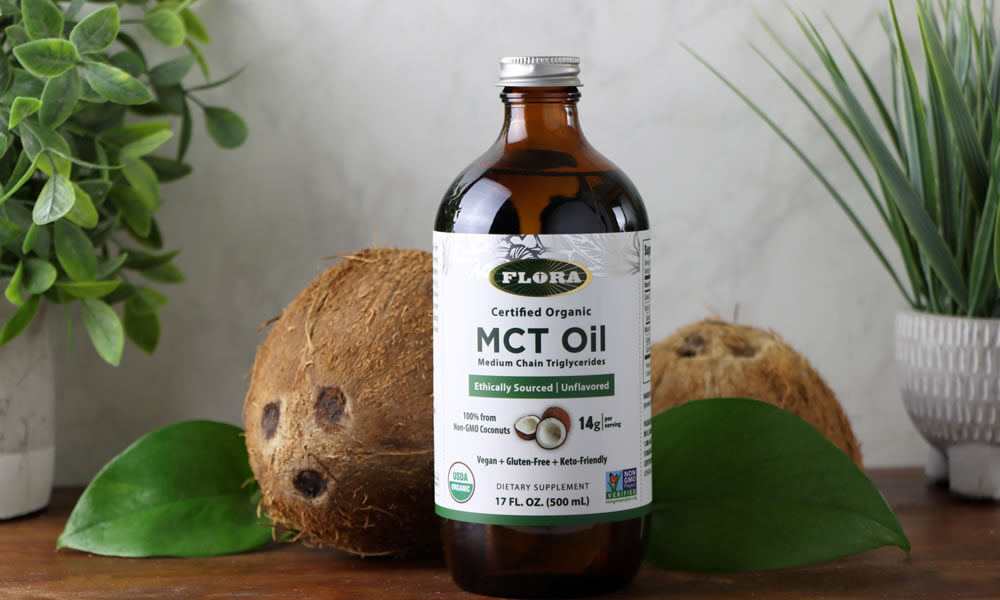- Home
- About
- Portfolio
Crush the Match – Medical School and Residency Platform
Food¢ense – Curbing Childhood Obesity and Food Waste
HealthStack – Shared and Jailed HIPAA Hosting $50
Marta Care – Let Us Help When You Can’t
MD Idea Lab – We Build Prototypes for Doctors
Nervcell – The Healthcare Web Browser
Patient Keto – Personalized Keto Medicine and Telehealth
SwipeChart – Rapid EMR Interface
Treatment Scores – Quantifying the Science of Medicine
Treatments – Diagnosed. Now What?
VIDRIO – Google Glass and EMR Interface
- Blog
- Contact
- Home
- Warp Core Health
- Blog
- MCT Oil
Category: MCT Oil
Exploring the Potential Benefits of MCT Oil for Health and Wellness
- July 7, 2024
- Stephen Fitzmeyer, MD
- No Comments
By Stephen Fitzmeyer, MD
Introduction:
MCT oil, short for medium-chain triglyceride oil, has gained considerable attention in recent years for its potential health benefits. Derived from coconut or palm kernel oil, MCT oil is composed of medium-chain fatty acids that are easily absorbed and rapidly converted into energy by the body. In this article, we will explore the various benefits associated with MCT oil and its potential impact on weight management, energy levels, cognitive function, gut health, nutrient absorption, and certain medical conditions.
Weight Management:
MCT oil has been the subject of studies investigating its role in weight loss and weight management. Due to its unique properties, MCT oil can increase feelings of fullness and potentially reduce calorie intake, aiding in weight management efforts. Incorporating MCT oil into a balanced diet may provide individuals with a sustainable approach to shedding excess pounds.
Energy Boost:
One of the notable advantages of MCT oil is its ability to serve as a quick source of energy. Unlike long-chain fatty acids, which take longer to break down, MCT oil is rapidly converted into energy by the body. This characteristic makes it a favored choice for athletes and individuals engaging in high-intensity workouts, as it can provide an immediate energy boost to fuel performance.
Mental Clarity and Cognitive Function:
The consumption of MCT oil can lead to elevated levels of ketones in the body. Ketones are an alternative energy source for the brain, and they have been associated with improved mental clarity, focus, and cognitive function. This makes MCT oil particularly intriguing for individuals following ketogenic diets or seeking to enhance their mental performance.
Nutrient Absorption:
MCT oil has been found to enhance the absorption of fat-soluble vitamins and minerals. By incorporating MCT oil into meals, the body’s ability to absorb essential nutrients such as vitamin E, vitamin D, calcium, and magnesium may be improved. This can be especially beneficial for individuals with nutrient deficiencies or compromised nutrient absorption.
Gut Health:
The antimicrobial properties of MCT oil have shown potential in promoting a healthy gut microbiome. Research suggests that MCT oil can help reduce harmful bacteria while encouraging the growth of beneficial bacteria in the digestive system. A balanced gut microbiome is crucial for overall gut health, digestion, and immune function.
Increased Ketone Production:
MCT oil is frequently used in ketogenic diets due to its ability to enhance the production of ketones in the body. Ketones are produced when the body breaks down fat for energy and can provide metabolic benefits such as enhanced fat burning. This makes MCT oil a valuable addition to the diet of those aiming to achieve and maintain a state of ketosis.
Management of Certain Medical Conditions:
Emerging research indicates that MCT oil may have a positive impact on certain medical conditions. Studies have explored its potential use in managing epilepsy, Alzheimer’s disease, and autism. While more research is needed to fully understand its effects and appropriate usage, MCT oil shows promise as a potential adjunct therapy for these conditions.
Conclusion:
MCT oil offers a range of potential health benefits, including weight management, increased energy, improved cognitive function, gut health promotion, enhanced nutrient absorption, and potential therapeutic applications in certain medical conditions. However, it is essential to remember that individual responses may vary, and consulting with a healthcare professional before incorporating MCT oil into your routine is advised. Additionally, moderation is key, as excessive consumption of MCT oil may lead to digestive issues or an increase in calorie intake. With the right approach, MCT oil can be a valuable addition to a balanced and healthy lifestyle.
Author: Stephen Fitzmeyer, M.D.
Physician Informaticist
Founder of Patient Keto
Founder of Warp Core Health
Founder of Jax Code Academy, jaxcode.com
Connect with Dr. Stephen Fitzmeyer:
Twitter: @PatientKeto
LinkedIn: linkedin.com/in/sfitzmeyer/
Recent Posts
- Protected: Warp Core Health: Building a Custom AI Model for Transforming Healthcare
- The Intersection of Healthcare, AI, Clinical Informatics, and Machine Learning
- Accessing Siloed EMR Systems with FHIR: Connecting to Multiple EMRs
- How AI and Informatics Are Transforming Healthcare
- How AI Can Transform Healthcare Applications
Categories
- ApoB
- Artificial Intelligence
- Autophagy
- Biochemistry
- Biomedical Informatics
- Biostatistics
- Blood Glucose
- CAC
- Carbs
- CCD
- CDA
- Clinical Informatics
- Coding Bootcamp
- Coronary Artery Disease
- COVID-19
- Cybersecurity
- Data Science
- Diabetes
- Diet
- EHS
- EMR
- Epidemiology
- Evidence Based Medicine
- Fats
- FHIR
- Fiber
- Generative AI
- Global Health
- Health Administration
- Health Informatics
- Health IT
- HIPAA
- HL7
- Hyperglycemia
- Hypoglycemia
- ICD 10
- Intermittent Fasting
- Ketogenic Diet
- Machine Learning
- Macronutrients
- MCT Oil
- Metabolic Health
- Metabolic Syndrome
- Minerals
- Mitochondria
- MySQL
- Neurology
- Nutritional Ketosis
- Nutritional Neurology
- Nutritional Psychiatry
- PHP
- PHR
- Programming
- Prompt Engineering
- Proteins
- Prototypes
- Public Health
- Python
- Recipes
- Sleep Health
- Stroke
- Uric Acid
- Vegan and Vegetarians
- Vitamin D
- Vitamin K2
- Vitamins

